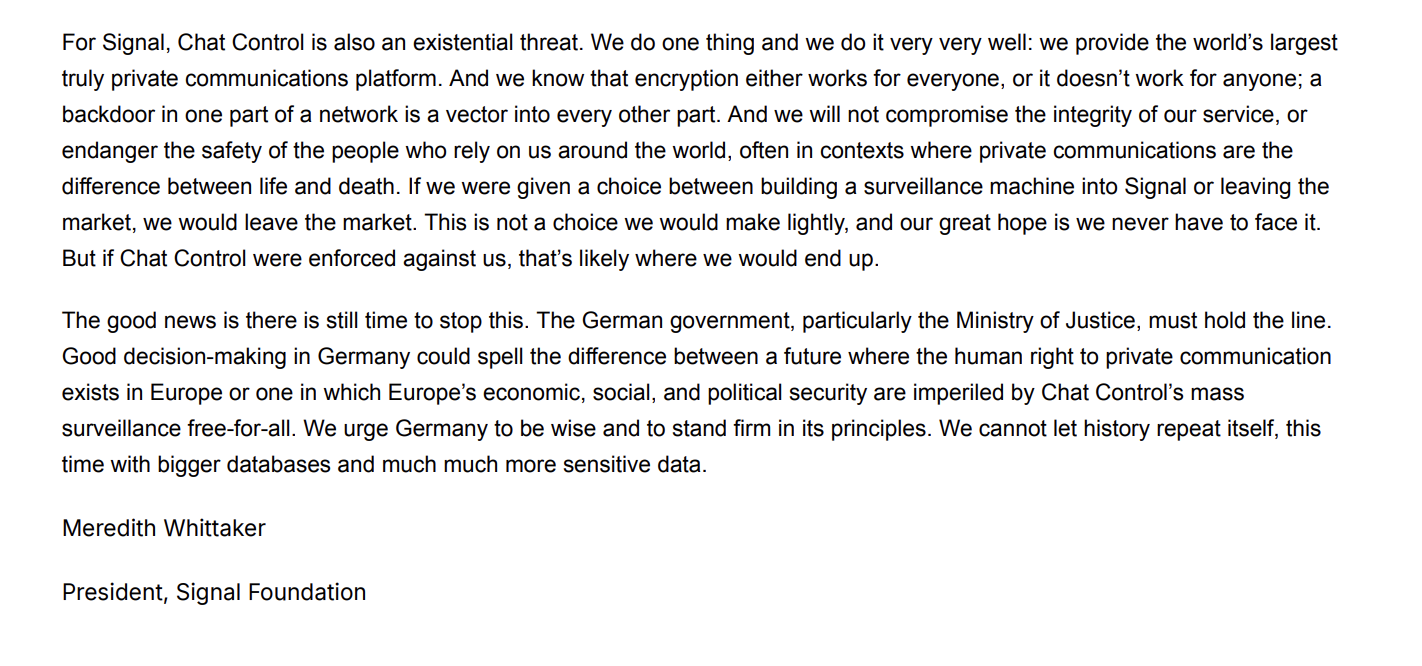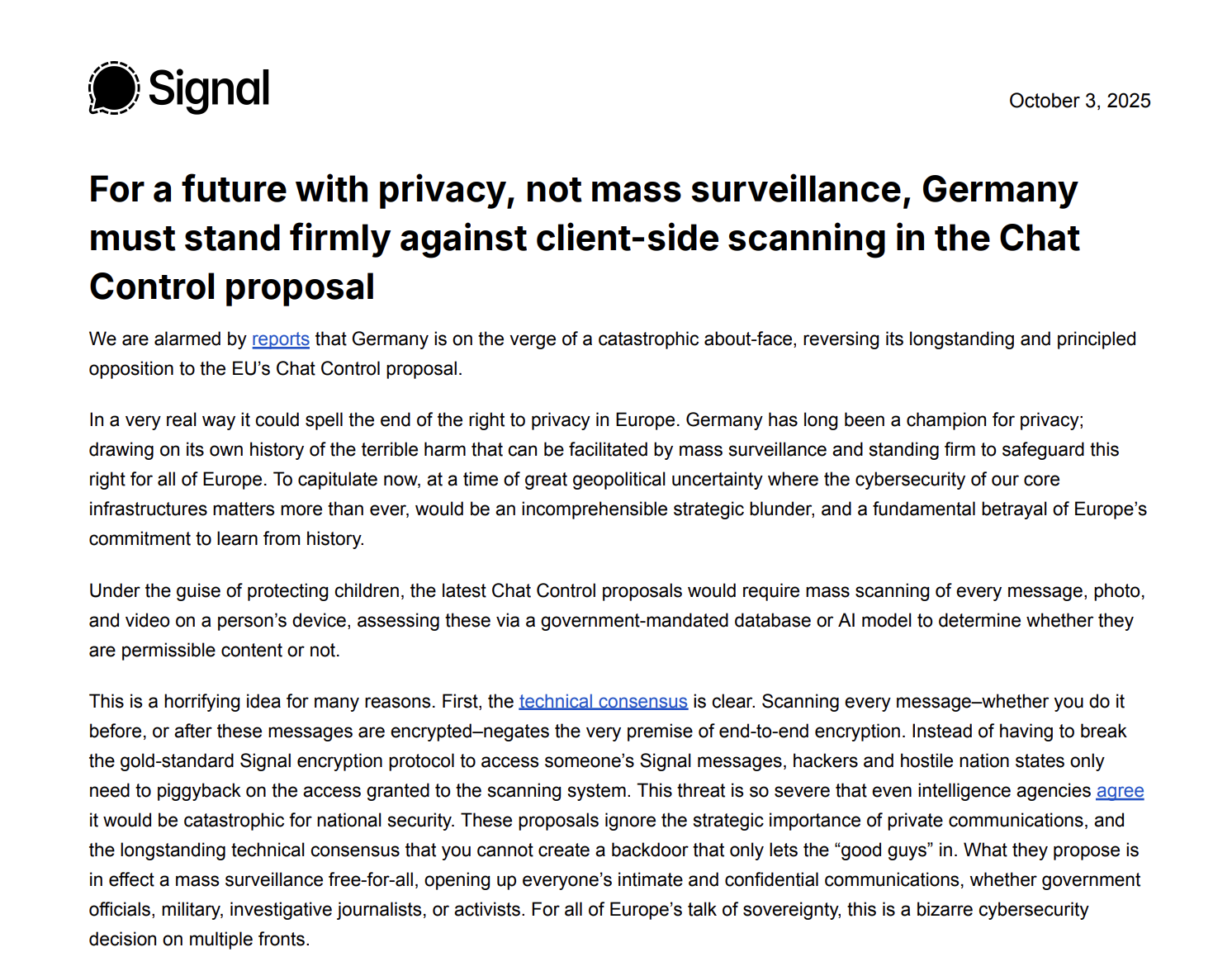For Signal, Chat Control is also an existential threat. We do one thing and we do it very very well: we provide the world’s largest
truly private communications platform. And we know that encryption either works for everyone, or it doesn’t work for anyone; a
backdoor in one part of a network is a vector into every other part. And we will not compromise the integrity of our service, or
endanger the safety of the people who rely on us around the world, often in contexts where private communications are the
difference between life and death. If we were given a choice between building a surveillance machine into Signal or leaving the
market, we would leave the market. This is not a choice we would make lightly, and our great hope is we never have to face it.
But if Chat Control were enforced against us, that’s likely where we would end up.
The good news is there is still time to stop this. The German government, particularly the Ministry of Justice, must hold the line.
Good decision-making in Germany could spell the difference between a future where the human right to private communication
exists in Europe or one in which Europe’s economic, social, and political security are imperiled by Chat Control’s mass
surveillance free-for-all. We urge Germany to be wise and to stand firm in its principles. We cannot let history repeat itself, this
time with bigger databases and much much more sensitive data.
Meredith Whittaker
President, Signal Foundation

